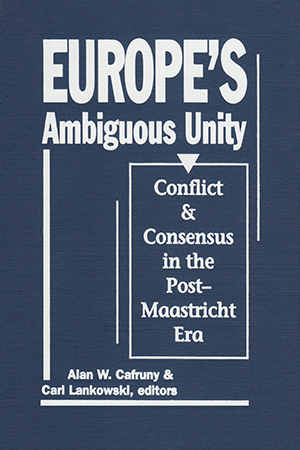
- 1997/271 pages
Europe's Ambiguous Unity:
Conflict and Consensus in the Post-Maastricht Era
Although the European Union as an entity now enjoys support from across most of the political spectrum, this has by no means resulted in the acceptance of a single vision of the EU. The apparent successes engendered by the Single European Act and the Maastricht Treaty have led instead to both a broadening and a reformulation of opposition. The nations of Western Europe have thus forged an ambiguous unity.
The authors of this volume focus on the connections between processes of European integration and the articulation of alternative programs and policies. Part 1 considers the key unresolved dilemmas of the emerging economic and political union. Part 2 offers case studies of political and social movements throughout the EU, examining states that traditionally have voiced the greatest doubts about the Union, as well as those in which support has been strong.







